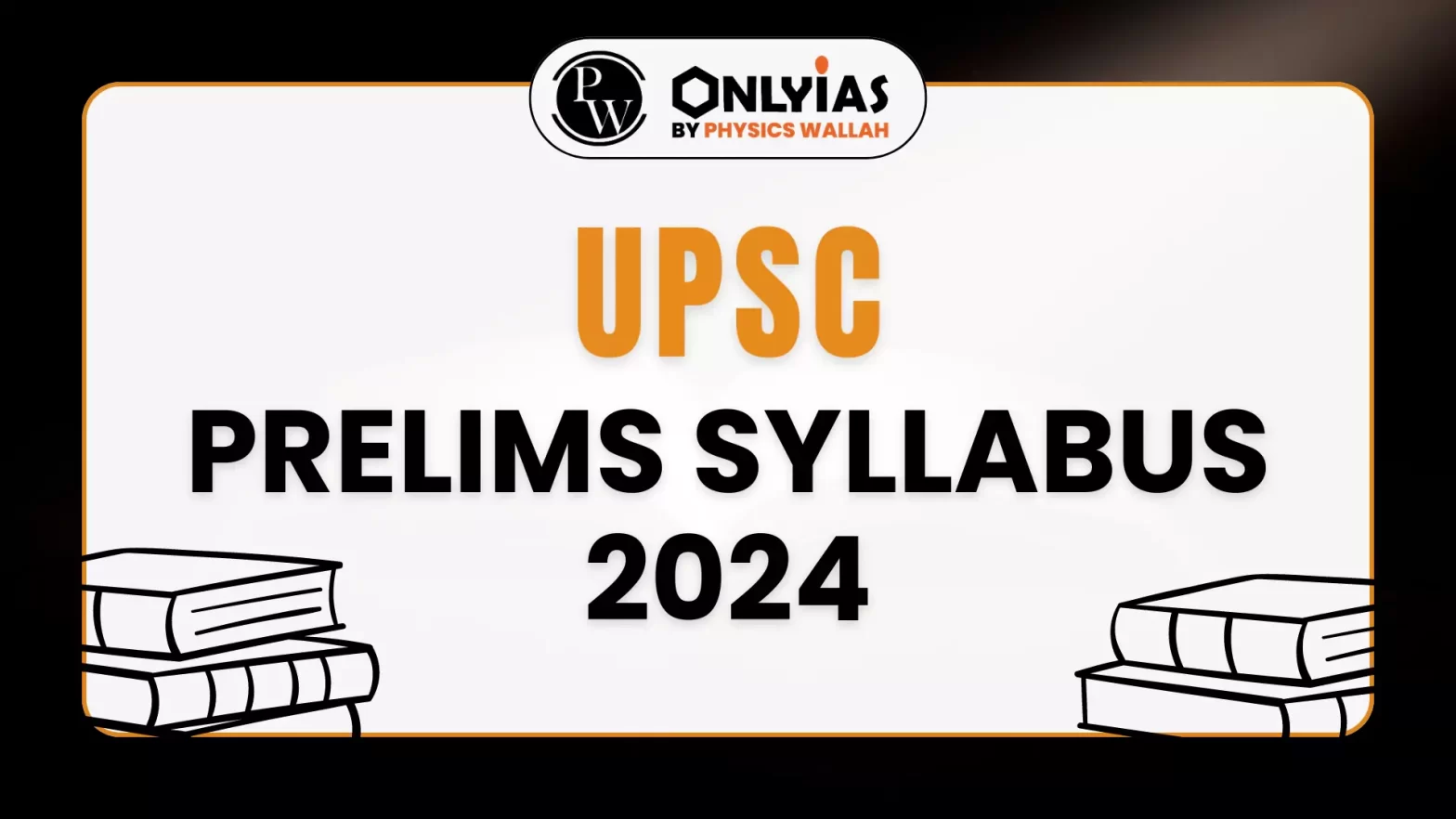![]() PWOnlyIAS
PWOnlyIAS
![]() April 12, 2024 06:38
April 12, 2024 06:38
![]() 516
516
![]() 0
0
Learn the UPSC Prelims Syllabus by learning the General Studies and CSAT paper breakdowns in detail.

UPSC Prelims Syllabus can overwhelm new aspirants. Here we simplify it into small topics for focused prep, helping candidates start their journey.
UPSC prelims syllabus can be divided into two papers: Paper I, which is General Studies (GS), and Paper II, which is CSAT. Candidates will have to prepare well for both papers to clear the prelims examination. For that to happen, covering the complete UPSC Prelims syllabus is imperative.
Candidates are required to study subjects such as Polity, History, Geography, Environment, Current Affairs etc. as part of GS Paper, and Quants, Reasoning and Reading Comprehension as part of CSAT Paper. By comprehensively preparing the subjects, the candidate has higher chances of excelling in the UPSC Prelims exam.
As mentioned above, the syllabus for UPSC prelims has not been mentioned in detail. The syllabus can be broken down into micro topics by analysing questions asked in the exam. Hence, candidates also have to divide their preparation time into different slots, dedicated to each subject.
The division of the UPSC Prelims syllabus into General Studies and CSAT has been provided below:
|
|---|
|
|---|
| Type | General Studies Paper 1 | GS Paper II- (CSAT) |
| Questions | 100 Objective Type | 80 Objective Type |
| Marks | 200 Marks | 200 Marks |
| Negative Marking | +2 Marks/Question and -0.66 Negative Marks/Question | +2.5 Marks/Question /Question and -0.83 Negative Marks/Question |
| Duration Of Exam | 2 Hours | 2 Hours |
| Qualifying Marks | Cut-Off List | Minimum 33% |
| Languages | English and Hindi | English and Hindi. |
Important Note: It is mandatory for the candidate to appear in both the papers examinations for the purpose of evaluation. The candidate will be disqualified if he/she does not appear in both papers of the preliminary examination.
UPSC prelims syllabus can be completely covered by referring to specific books by reputed authors. Reading from one standard book is generally preferred so as to save time. Following is a list of books that cover UPSC prelims syllabus comprehensively.
| Subject | Books |
| Polity |
|
| History |
|
| Geography |
|
| Environment and Ecology |
|
| International Relation |
|
| Science and Technology |
|
| Economy |
|
| Art and Culture |
|
| CSAT (Complete Syllabus) |
|
Current affairs play an important role in the UPSC preliminary exam. The UPSC mentions that a candidate has to know the current events of national and international importance as part of the syllabus. The nature of current affairs has evolved over time and in recent times, UPSC has transcended boundaries to include topics that were not conventionally asked. The importance of current affairs for UPSC prelims is as follows:
UPSC prelims syllabus cannot be completed without a proper plan. Candidates will have to have two separate approaches for GS and CSAT to overcome the time constraints. Following are some strategies that can be followed by candidates:
Strategy for General Studies |
Strategy for CSAT |
|
|
The UPSC Prelims syllabus has not undergone changes over the years, but the questions asked from the syllabus have evolved. The examination is not just restricted to core topics; subsidiary interlinkages are also very important. However, it does not mean that we should completely stop focusing on core subjects. These core subjects were important and will always remain so. Candidates will just have to read the topics in depth to have a better chance of scoring good marks.
The examination not only tests a candidate’s knowledge; it also tests their ability to comprehend complex information, analyze data, and make reasoned judgments. It also evaluates candidates’ aptitude for problem-solving and their capacity to apply knowledge to real-world scenarios.
| Must Read | |
| NCERT Notes For UPSC | UPSC Daily Current Affairs |
| UPSC Blogs | UPSC Daily Editorials |
| Daily Current Affairs Quiz | Daily Main Answer Writing |
| UPSC Mains Previous Year Papers | UPSC Test Series 2024 |
<div class="new-fform">
</div>
Latest Comments